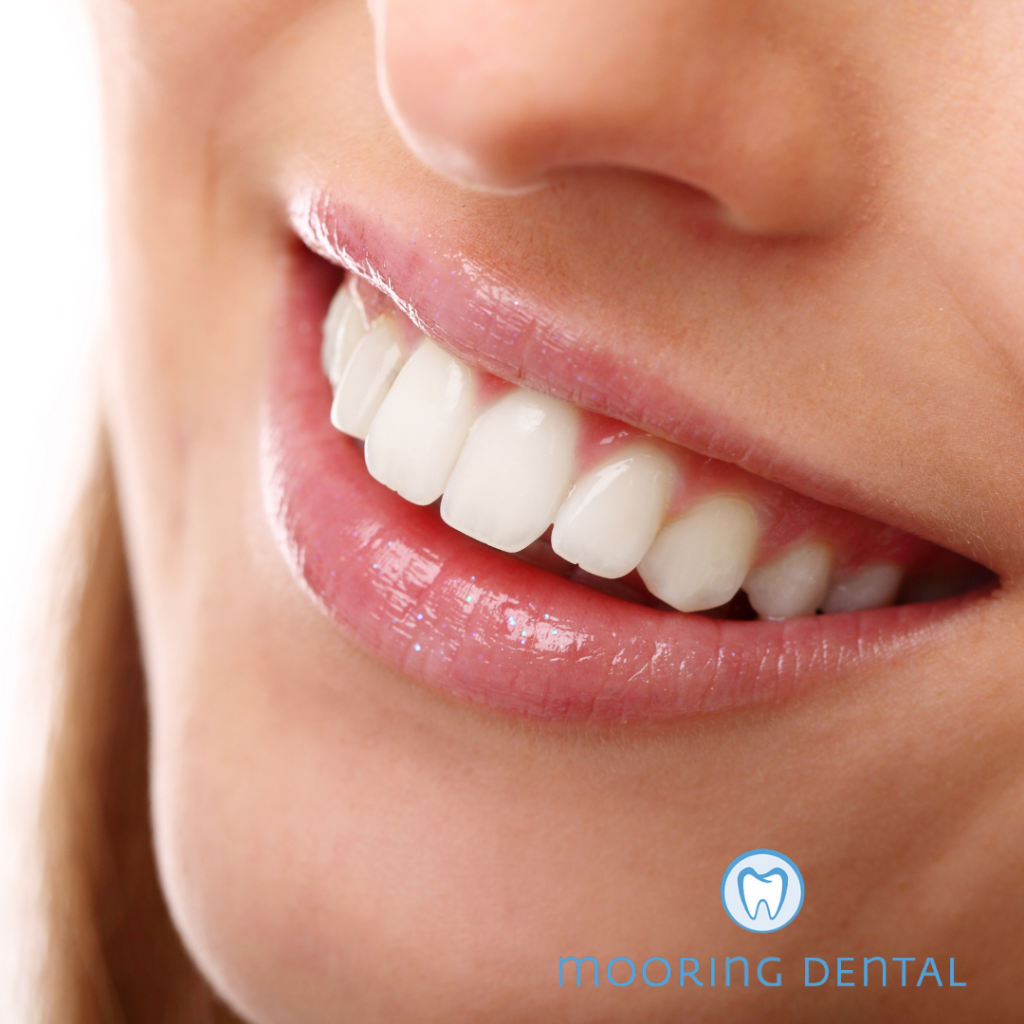
Tooth sensitivity is a common problem that can interfere with everyday activities like enjoying your favorite foods or drinks. At Mooring Dental in Clayton, Dr. Sean Mooring and our team understand how frustrating and uncomfortable dealing with sensitive teeth can be. As a trusted family dental practice, we’re here to provide helpful tips and effective solutions to manage and prevent tooth sensitivity.
Understanding Tooth Sensitivity
What Causes Tooth Sensitivity?
Tooth sensitivity occurs when the outer protective layers of your teeth are compromised, exposing the dentin and tiny nerve endings underneath. Common causes include:
- Acidic Food and Beverages: Consuming large amounts of acidic food or drink and not engaging in proper oral hygiene afterwards.
- Brushing Too Hard: Brushing teeth too aggressively or using a hard-bristled toothbrush.
- Gum Recession: Often linked to gum disease and poor oral hygiene.
- Tooth Decay or Damage: Cavities, cracks, dental injury, or worn fillings can expose the tooth’s dentin, nerve endings, or root.
- Teeth Grinding (Bruxism): Chronic grinding can wear down tooth enamel over time.
- Over-the-Counter Whitening Products: Improper or too frequent use of “drug store” whitening kits.
Symptoms of Tooth Sensitivity
If you’re experiencing sharp pain or discomfort when consuming hot, cold, sweet, or acidic foods and drinks, or breathing in cold air, tooth sensitivity may be the culprit. Sensitivity can also occur during brushing, flossing, or rinsing with mouthwash.
Tips for Managing Sensitive Teeth
1. Use a Desensitizing Toothpaste
Specially formulated toothpaste for sensitive teeth can block pain signals and provide relief. Look for products containing ingredients like potassium nitrate or stannous fluoride.
2. Switch to a Soft-Bristled Toothbrush
Hard-bristled toothbrushes or aggressive brushing can wear down tooth enamel and irritate the gums. Opt for a soft-bristled toothbrush and use gentle, circular motions when brushing.
3. Avoid Acidic Foods and Drinks
Foods and beverages like citrus fruits, soda, coffee, and wine can erode enamel over time. When you do consume these items, rinse your mouth with water afterward to wash away acids.
4. Practice Good Oral Hygiene
Twice daily brushing and daily flossing plays a vital role in maintaining healthy teeth and gums. Keeping your mouth clean helps prevent issues like gum disease, which can exacerbate sensitivity.
5. Talk to Your Dentist About Tooth Whitening
When considering tooth whitening, it may be tempting to turn to an over-the-counter kit for an inexpensive fix. While this may seem like an easy solution, the whitening process can sometimes lead to unwanted side effects such as tooth sensitivity.
Undergoing professional tooth whitening allows you to receive personalized guidance, ensuring that the best method is selected for your specific needs and that preventive strategies are used to reduce the risk of sensitivity. Additionally, your dentist will monitor your oral health throughout the whitening process, making any necessary adjustments to minimize the risk of discomfort.
6. Wear a Mouthguard if You Grind Your Teeth
If you’re a teeth grinder, a custom mouthguard (sometimes called a nightguard) can protect your enamel from damage. Dr. Sean Mooring can help you find the right solution to stop grinding and protect your smile.
7. Rinse with Fluoride Mouthwash
Fluoride strengthens enamel and helps reduce sensitivity. Use a fluoride mouthwash daily as part of your oral hygiene routine.
Be careful, however, to use it only as directed — overuse of mouthwash can have the opposite effect and actually increase sensitivity.
8. Seek Professional Treatment
For persistent sensitivity, professional treatments can provide relief. These may include fluoride varnishes, dental bonding, or gum grafting to cover exposed roots. Dr. Mooring can recommend the best option for your specific needs.
Preventing Tooth Sensitivity
Maintaining regular dental visits is essential for preventing sensitivity and addressing and treating early signs of enamel erosion, gum disease, or other issues before they worsen. Being mindful of your diet by limiting sugary and acidic foods while incorporating calcium-rich options like dairy products and leafy greens can also protect and strengthen your enamel.
Proper brushing techniques, such as using a fluoride toothpaste and a soft-bristled toothbrush, and avoiding brushing immediately after consuming acidic foods or drinks, are crucial to protect your teeth. Additionally, addressing dental issues like cavities, cracks, injuries, or gum problems promptly can help prevent sensitivity from escalating and safeguard your overall oral health.
How Mooring Dental Can Help

At Mooring Dental in Clayton, we prioritize your family’s oral health and are committed to providing personalized care. Dr. Sean Mooring offers a range of treatments designed to address and manage tooth sensitivity, ensuring your smile stays healthy and pain-free.
IMPORTANT: Our office offers emergency dental care for patients who are experiencing extreme discomfort without relief.
Ready for Relief? Schedule Your Appointment Today!
If you’re struggling with sensitive teeth, we’re here to help. Schedule an appointment at Mooring Dental in Clayton today, and let our experienced team create a personalized plan to ease your discomfort and keep your smile healthy for years to come. Give us a call at 919-213-8487.
